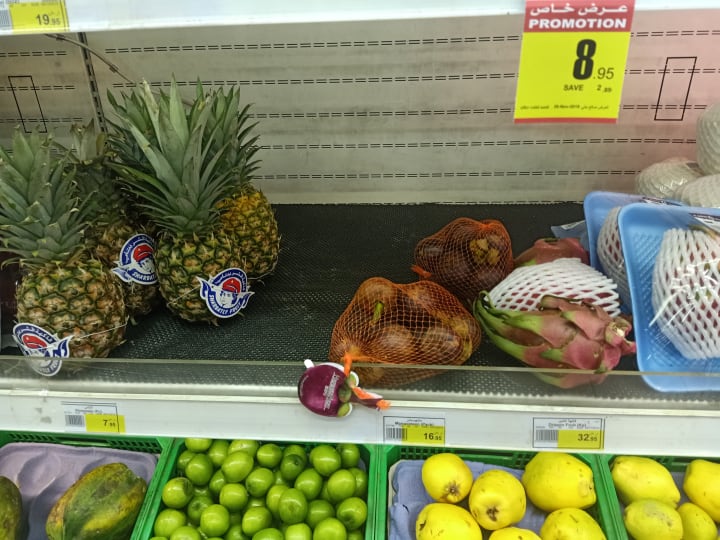The Soaring Cost Of Food In Saudi Arabia
Understanding The Factors Driving The Surge In Prices

Saudi Arabia is a nation experiencing fast economic growth and industrialization. However, this growth has come with rising inflation rates, including the rapidly soaring cost of food, which has hit the citizens’ pockets hard. The changes in the economy and other various factors influence the increase in food prices. In this article, we’ll explore the reasons behind the skyrocketing prices of food, including specific examples of the prices in different food marketplaces.
One of the most obvious causes of high food prices is the taxes and duty fees on imported products. Saudi Arabia is a country that depends on imported agricultural products to meet its food demand. With the government introducing new taxes on imports, the price of food transportation, labor, and cargo costs continue to rise. For instance, 500g of frozen chicken breasts retail at around SAR 14.00–15.00, costing nearly double the price of a few years ago.
Another significant factor contributing to the rapid rise of food costs in Saudi Arabia is fluctuating oil prices. Since Saudi Arabia exports oil to other countries, any significant fluctuations in oil prices render the cost of food scarce. As a result, food prices tend to increase or decrease with oil prices. For instance, the price of a kilogram of beef now costs SAR52.50, three times its original cost 15 years ago.
Unpredictable weather patterns leading to climate change have hit the agriculture sector hard, causing a decline in crop yield and an upsurge in food prices. Particularly, the desert country struggles with droughts and sandstorms, resulting in failing crop yields. Moreover, due to the country’s location on the Persian Gulf coast, torrential rains in the winter, with a higher concentration of salt, often destroy soil quality. As a result, there is a shortage of vegetables and fruits in the market, causing an increase in their prices. For example, one kilogram of tomatoes now cost SAR 8–10, up from the original price of SAR 3–5 over the last two decades.
In addition to external factors such as weather patterns, international sanctions and political instability can often lead to a surge in food prices. Exporters may be forced to increase food prices or impose embargoes on specific foods, which in turn influence the market. For instance, aligning with the current sanctions imposed on Iran has affected fruit suppliers and prices of products such as apples, oranges, and grapes. One kilogram of apples often retails at nearly SAR 14–18 per kilogram, making it a luxury rather than a commodity.

The high prices of food in Saudi Arabia have a ripple effect on the country’s economy and the citizen’s day to day life. For instance, low-income households may not be able to afford the basics they need to survive, such as meat and fresh produce. On the other hand, high-income families can endure the high prices, but it limits their purchasing power. Regardless of the income levels, the surge in food prices often leads to inflation across the board.
The soaring cost of food in Saudi Arabia is a complex issue influenced by a wide range of factors, including taxes, duties, weather patterns, international sanctions, and oil prices. The high food prices inevitably impact the economy and citizens’ daily lives. However, the government has taken steps to address the problem by encouraging local production, reducing taxes on certain food products, and introducing subsidies to support low-income families. Moreover, renewable energy initiatives are contributing to reducing the country’s dependence on oil, which would help keep food costs down in the long term.
Saudi Arabia is facing a complex issue with the soaring cost of food, and there are many factors influencing it. The economy, as well as people’s daily lives, have been and continue to be impacted by high food prices. However, the government is taking measures to address the problem. They are encouraging local production, reducing taxes on certain food products, and introducing subsidies to help low-income households. Moreover, renewable energy initiatives are contributing to reducing the country’s dependence on oil.
To resolve this problem, Saudi Arabia needs to continue investing in sustainable agriculture and renewable energy initiatives. Through this approach, the country can improve its food supply chain, increase crop yields, and ensure natural resources are conserved. This way, they can lessen their reliance on imports, grow their agricultural industry, bring down food prices, and provide a better lifestyle to its citizens. By smartly managing their resources and planning for the future, Saudi Arabia can offer its population a thrivable ecosystem and keep meeting their needs.
-----
Original story (created by me) published on Medium.com. Any changes and/or updates that have been added on Vocal.media are for content consumption purposes.
Thank you for your time, I hope you thoroughly enjoyed what you have read today. Please subscribe. I have plenty of upcoming articles on varying topics, if you so choose to check them out. Also if you would be so kind, I would greatly appreciate a heart. Lastly, if you feel inclined to do so, tips and of course pledges (currently only $2.99 a month) are greatly appreciated. Our monies collected in Vocal help support the Bunong tribal people in Cambodia.
About the Creator
Freddie's Lost Treasures
A traveler in search of lost and hidden treasures. I have assembled a lifelong learning of being in the business world and decided to take a leap to see what is outside the confines of brick and mortar and left the 9 to 5 behind.






Comments
There are no comments for this story
Be the first to respond and start the conversation.